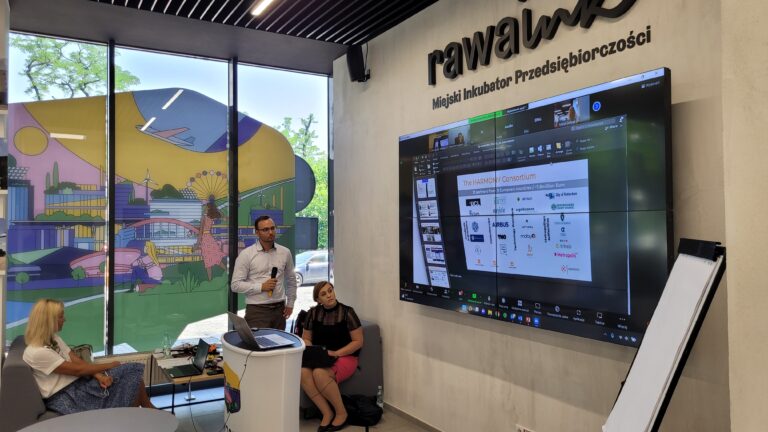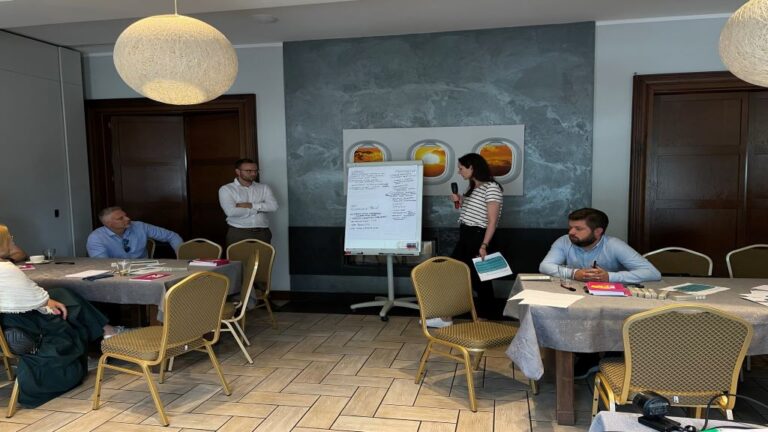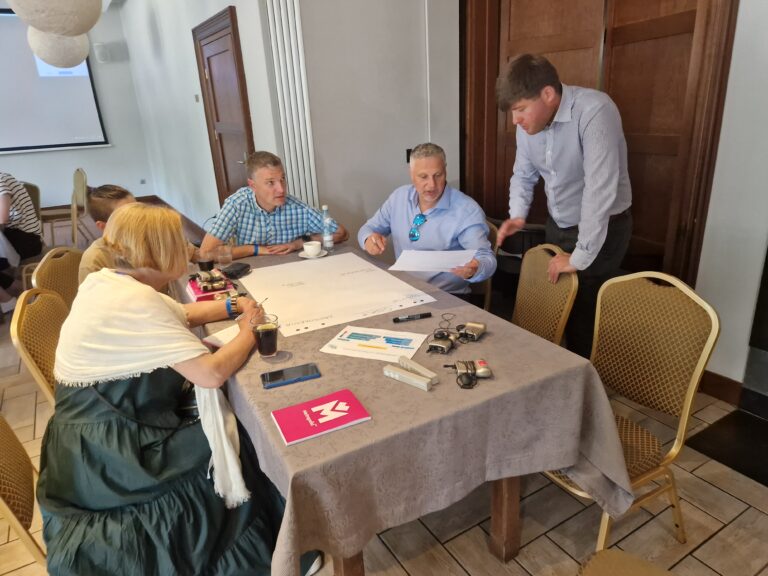
As part of the 11th session of the World City Forum in Katowice (WUF-11) on June 29 and 30, workshops entitled “Drones 2050. What went wrong and” Conditions for drones in cities – social acceptance “.
Workshops called “Drones 2050 – what went wrong” took place on June 29 at the Muchowiec airport in Katowice. The aim of the workshop was to analyze selected scenarios for the use of drones in the perspective of 5, 10, 15 years and the potential threats to the implementation of this type of operation by looking for analogies to the successes and failures resulting from previous experience in introducing innovative technologies in other areas, based on the assumptions of the ASSURED project -UAM, financed by the European Commission under the HORIZON 2020 Program.
The beginning of the workshop began with an important topic, which raised barriers to the introduction of drone services, by looking for analogies to the successes and failures resulting from previous experience in introducing innovative technologies in other areas, by comparing them to the beginnings of the automotive industry along with film material.
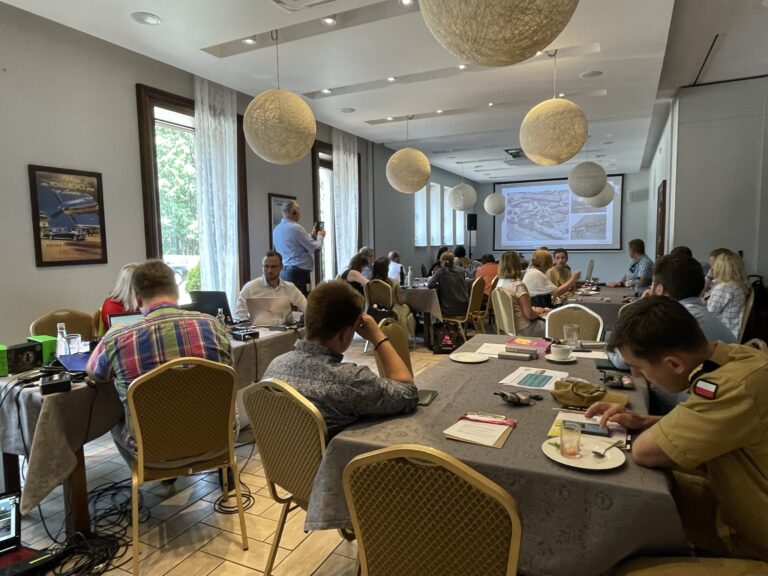
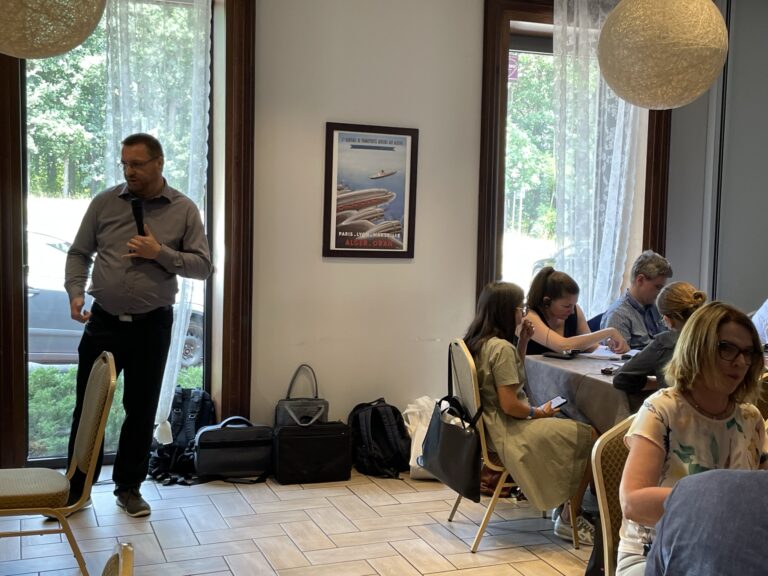
A set of relevant factors had to be identified for the type of service allocated, such as:
And thanks to group work, the following golden rules emerged:
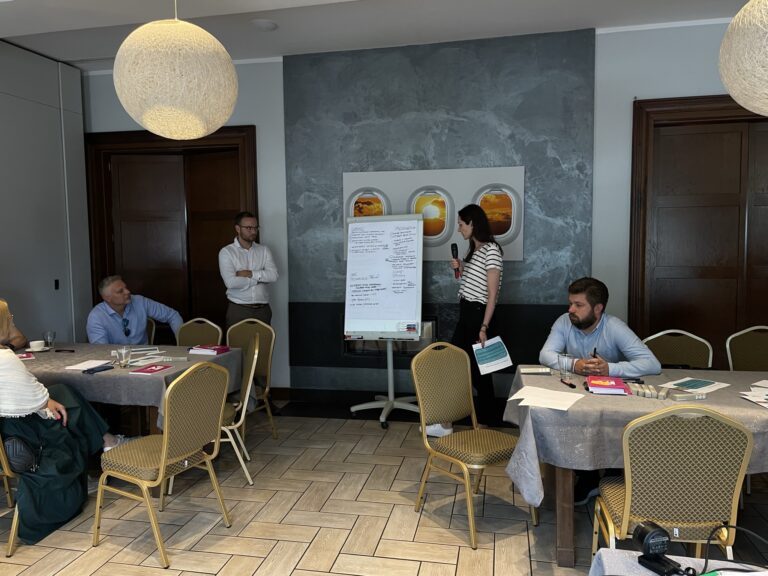
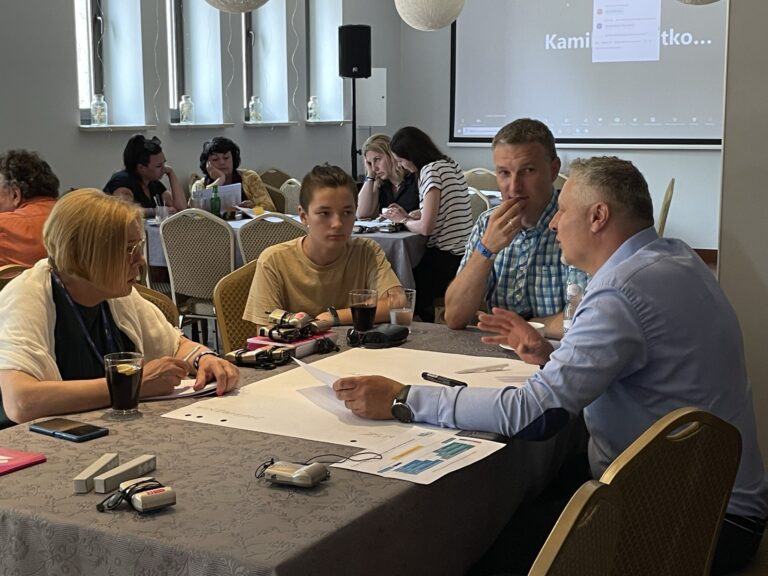
A very important issue raised during the classes was the mental preparation of potential recipients – city dwellers, the need for education in this area both in the form of organized in educational institutions as well as by organizing picnics, promoting competitions and sports with the participation of drones. Pointing to the benefits of using UAVs in terms of reducing the negative impact on the natural environment versus traditional road transport. Emphasizing the profit that entails the use of drones in goods delivery services, or the dissemination of positive UAV applications for rescue missions, drug delivery, etc. reflected in the policy implemented at the local level in the context of providing public services with the use of modern unmanned technologies. In this case, it is desirable to inform the public about the use of the latest technology, safety systems, test results, research conducted on increasing flight safety, eliminating the nuisance of functioning in public space or ensuring privacy through special supervision and appropriate legal regulations
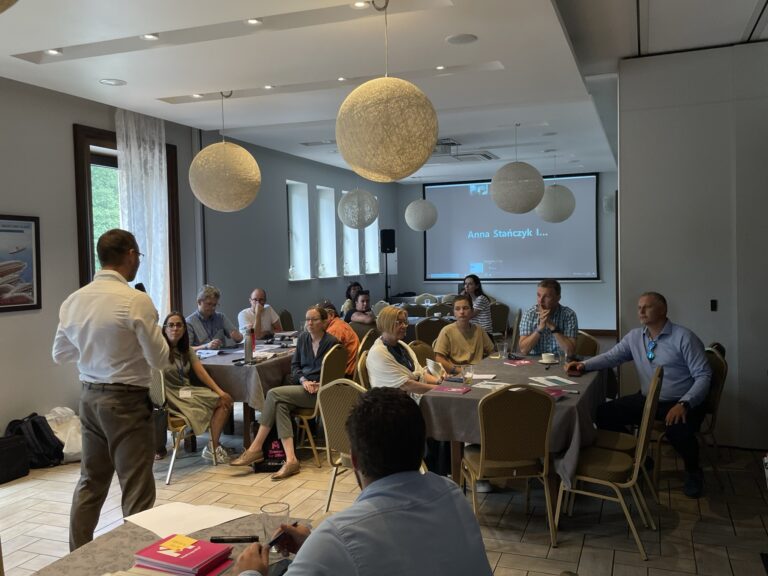
The workshop “Conditions for drones in cities – social acceptance” took place on June 30, 2022 as part of the 11th session of the World City Forum in Katowice (WUF-11). The aim of the event was to determine the potential and concerns related to the services provided by urban unmanned aerial vehicles, based on the assumptions of the HARMONY project, financed by the European Commission under the HORIZON 2020 Program.
After introducing the participants to the topic of the workshop, there was a preliminary opinion survey on the associations that the topic of drones in cities evokes, their potential use and related concerns. The SLIDO tool was used to collect the votes of the participants, which allows for quick gathering of opinions via an application for a mobile phone. The next stage of the workshop was to provide participants with in-depth knowledge about the practical aspects of using drones in urban areas, with the presentation of films on this subject. Examples of specific projects implemented by Polish companies were presented, including in the field of medical transport, rescue and passenger transport.
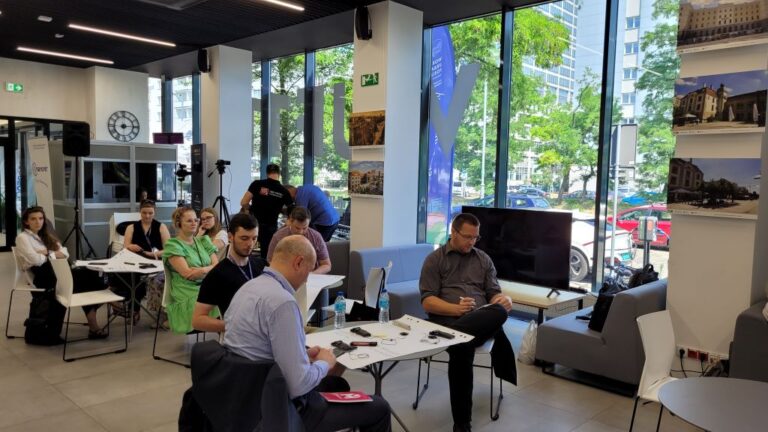
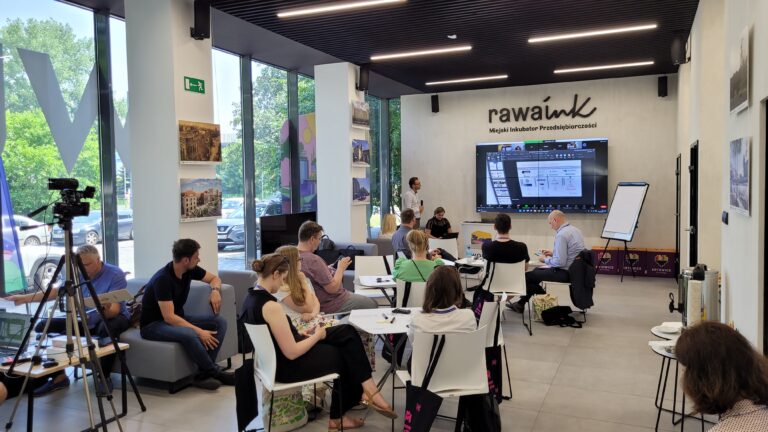
After the break, workshop participants started working in teams, divided into stationary and on-line groups. Each group was to analyze the factors influencing the success of the implementation of drone services in cities. For the type of service assigned, a set of important factors had to be defined, such as: – opportunities and threats to the selected service;
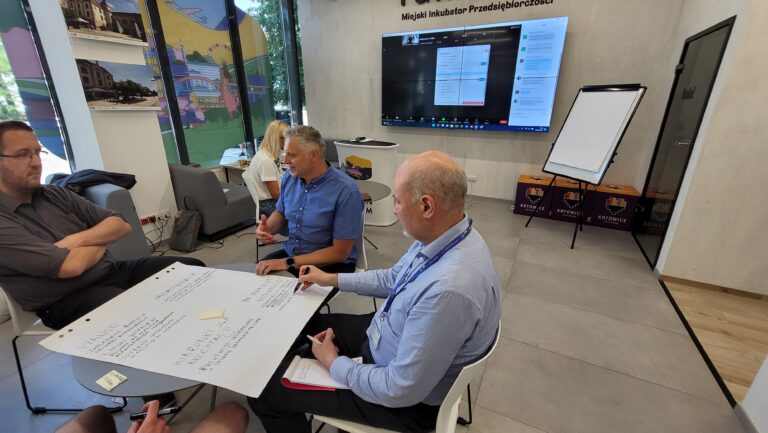
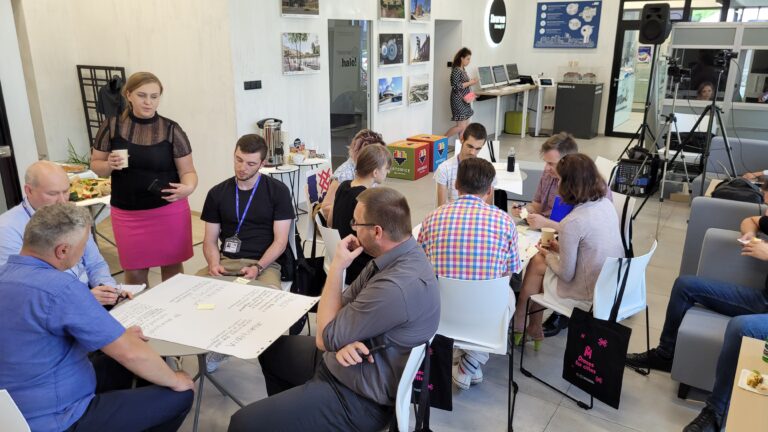
The course of the workshop showed that the exchange of information between various groups of stakeholders affected by the concept of using drones in services in urban areas is necessary to prepare the public for their implementation.
Factors that are of concern for drones, such as noise, violation of privacy or the risk of collision, must be reflected in the policies implemented at the local level, in the context of the provision of public services using modern unmanned technologies.
